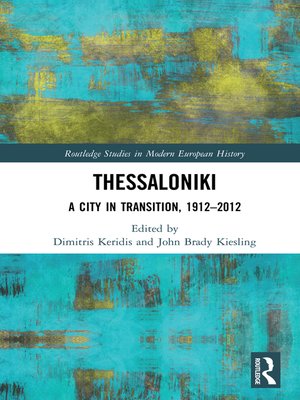Thessaloniki
ebook ∣ A City in Transition, 1912–2012 · Routledge Studies in Modern European History
By Dimitris Keridis

Sign up to save your library
With an OverDrive account, you can save your favorite libraries for at-a-glance information about availability. Find out more about OverDrive accounts.
Find this title in Libby, the library reading app by OverDrive.



Search for a digital library with this title
Title found at these libraries:
| Library Name | Distance |
|---|---|
| Loading... |
This book shares the conclusions of a remarkable conference marking the centennial of Thessaloniki's incorporation into the Greek state in 1912. Like its Roman and Byzantine predecessors, Ottoman Salonica was the metropolis of a huge, multi-ethnic Balkan hinterland, a center of modernization/westernization, and the de facto capital of Sephardic Judaism. The powerful attraction it exerted on competing local nationalisms, including the Young Turks, gave it a paradigmatic role in the transition from imperial to national rule in southeastern Europe.
Twenty-three articles cover the multicultural physiognomy of a 'Levantine' city. They describe the mechanisms for cultivating national consciousness (including education, journalism, the arts, archaeology, and urban planning), the relationship between national identity, religious identity, and an evolving socialist labor movement, anti-Semitism, and the practical issues of governing and assimilating diverse non-Greek populations after Greece's military victory in 1912. Analysis of this transformation extends chronologically through the arrival of Greek refugees from Turkey and the Black Sea in 1923, the Holocaust, the Greek civil war, and the new waves of migration after 1990. These processes are analyzed on multiple levels, including civil administration, land use planning, and the treatment of Thessaloniki's historic monuments.
This work underscores the importance of cities and their local histories in shaping the key national narratives that drove development in southeastern Europe. Those lessons are highly relevant today, as Europe reacts to renewed migratory pressures and the rise of new nationalist movements, and draws lessons, valid or otherwise, from the nation-building experiments of the previous century.







